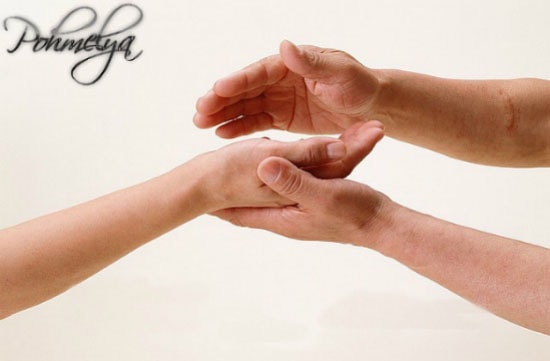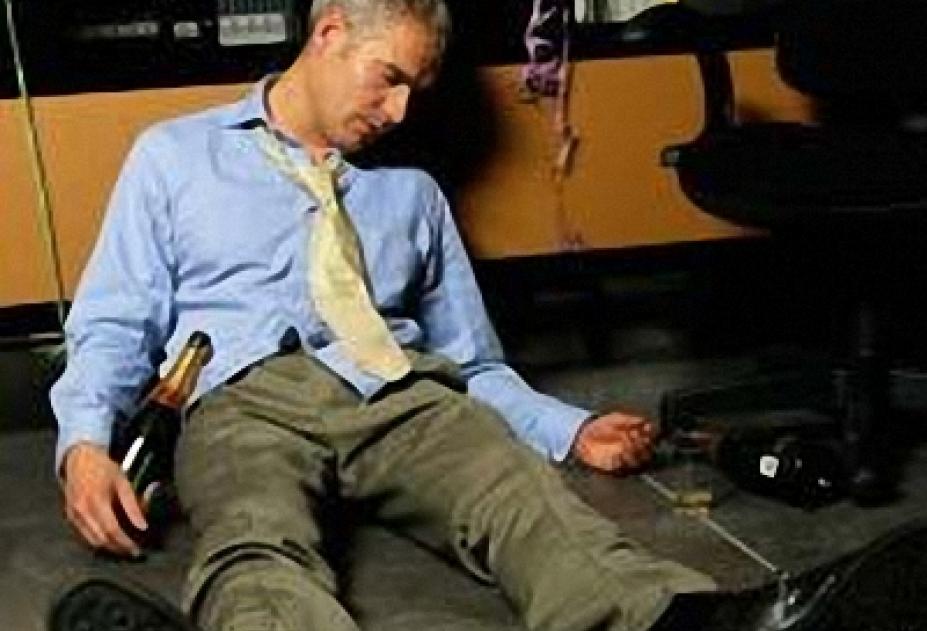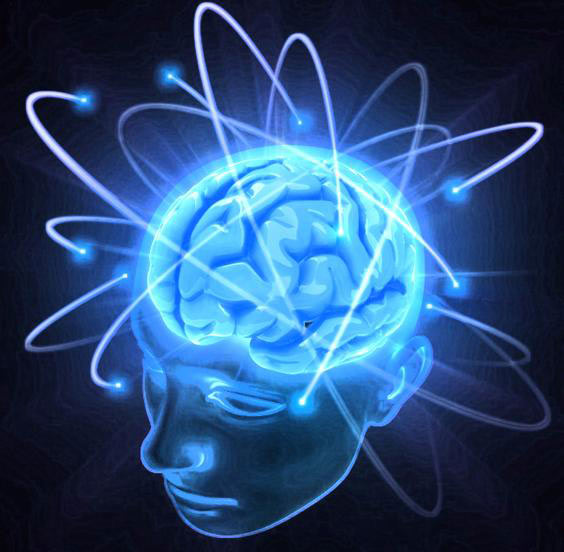Alcoholism brings suffering not only to the alcoholic himself, but also to those around him. It is especially difficult for parents of a drinker. Few of them will not have fear and despair for their child, and few of them will not ask the question: “How to help my son stop drinking?”
Unfortunately, when a son drinks, parents most often resort to scandals and threats, sometimes to violence and prohibitions. Trying to influence the problem in this way, they forget about its causes. And the reasons may be different. Perhaps the son drinks because of excessive parental care (this is how he proves his “maturity” and independence, and escapes parental control). The cause of drunkenness can be a loss of meaning in life, disappointment in oneself or others, lack of interests and life goals, coping with stress, etc. At an early stage, when the son is just starting to get used to alcohol, a consultation is enough to stop this process, inevitably leading to alcoholism. But pressure on the son, on the contrary, only further alienates him from his parents and aggravates the problem.
What should you do if you notice that your son is drinking?
 You need to sound the alarm as soon as the problem becomes obvious. Don’t wait for everyday drunkenness to develop into alcohol addiction: it will be much more difficult to help your alcoholic son. You can talk about the presence of a problem if you notice that your son has begun to get involved in beer or stronger drinks, when he spends more and more time in a company where alcohol has long become an indispensable attribute of communication, if he uses every convenient occasion (even any home celebration) in order to drink.
You need to sound the alarm as soon as the problem becomes obvious. Don’t wait for everyday drunkenness to develop into alcohol addiction: it will be much more difficult to help your alcoholic son. You can talk about the presence of a problem if you notice that your son has begun to get involved in beer or stronger drinks, when he spends more and more time in a company where alcohol has long become an indispensable attribute of communication, if he uses every convenient occasion (even any home celebration) in order to drink.
But in this case, there is no need to immediately create a scandal, put pressure on your son and demand that he stop drinking alcohol. It is necessary to express your dissatisfaction, but calmly, without shouting. If you have a friendly relationship with your child, talk to him and try to understand what is bothering him. Ask those who are his authority to talk to him. Try to switch your son's interests from alcohol to something that is of interest to him. Finally, suggest visiting a psychologist or therapist.
But, most likely, you will receive a refusal to these offers, and your concerns about drunkenness will be answered by your son’s assurances that everything is under control. People who become dependent on alcohol often do not see their problem and fiercely prove to others that they are able to control their behavior.
If drunkenness continues, you need to express your negative attitude towards it, but this must be done gently. In a friendly manner. Show that it is you who suffer from your son’s behavior. You are a victim. Try to get your son to look at his problem from the outside and explain what he himself thinks about it. Remember that without the drinker recognizing the problem, nothing will change. Even going to the doctor is possible only with his consent.
What is alcoholism and how does it develop?
If loved ones of those who suffer from alcoholism had a correct understanding of what alcohol addiction is and how to behave with an alcoholic, the number of those cured would be much greater. But, unfortunately, generally accepted ideas about alcoholism, built on numerous myths, only aggravate the problem.
Alcoholism is a disease that requires treatment. Not education - but treatment. Very often, the realization that this is not simple drunkenness, but a real illness, comes to the alcoholic and his relatives already in the later stages of the disease. And then parents ask the question: “How to help their son who is an alcoholic?” and “What to do if your son is an alcoholic?”
To help your son stop drinking, you need, first of all, to help him realize his problem. He must understand that he is sick and that he can avoid the sad fate of an alcoholic only if he completely gives up alcohol. If your child is diagnosed with alcoholism, you will no longer be able to help your son stop drinking. Only he himself can do this. And for this he must have a desire and serious motivation to return to a sober life.
But the longer alcoholism develops, the more difficult it is to treat, so do not ignore your son’s drunkenness, even if he is quite an adult and independent person. To understand how far the problem has gone and what to do in this case, you can consult a narcologist or psychotherapist, even without the participation of your son.
Unfortunately, the problem of alcoholism is very relevant. The disease can befall a person both at an older age, or old age, and at a young age.
The son's drunkenness always shocks the parents, since it is the parents who are most concerned that their children do not become alcoholics. A person suffering from alcoholism loses interest in his own development, work and life.
The usual methods of parents to deal with their son’s problem are: attempts to persuade, quarrels, scandals or, as a last resort, threats.
Parents then ask friends, specialists, or search on the Internet for answers to the same questions: What should I do if my son drinks? How can I help him cope with the problem? How to cure your son from alcoholism?
First of all, you need to understand the reasons for drunkenness, its behavioral characteristics leading to drunkenness, and what exactly parents can do in this situation and what absolutely cannot be done. Only then a method of therapy and a way to help the son cope with the problem are selected.
Possible reasons for my son's drinking
The reasons why this misfortune can happen to your son can be very diverse. Certain circumstances in the family, work, or personal life can push you onto a slippery path.
This usually happens for these most common reasons:
- Excessive care from parents. In this case, the son simply wants to resist excessive pressure from his parents, so to speak, to prove to himself or someone that he is already independent and can do whatever he wants.
- Complete lack of interests and goals in life. Alcohol simply becomes a vital interest for him, and everything he does comes down to taking alcohol into his body. In this situation, the desire to find goals in life becomes less and less.
- Life disappointments and failures. Your son's indecisiveness prevents him from looking for other solutions to current failures.
- Stress. Loud failures disrupt the human psyche. Usually they are related to personal life, or the general perception of unpleasant situations.
How to understand that the problem has gained momentum
![]()
Most often, it all starts with something small – beer. Often, parents do not have time to notice how the disease has already taken possession of their son.
There are signs by which you can easily determine the degree of illness of your native:
- Regularity of drinking. The most important and most noticeable sign. The amount of drinking has increased from celebrations to “nothing to do”, or there are too many important occasions.
- A sharp reaction to the agitation of the father and mother. The alcoholic becomes short-tempered and rude to concerned parents.
- Rapid change in my son's mood state. I am no longer so concerned about the needs of my family and indifference to my appearance and condition.
How parental actions affect addiction

The main task is to improve relations with your son, increase trust, and let your son understand that you are ready to save him by all means.
To achieve this, positive actions would be:
- Show that you want to improve the relationship. Your actions should not be perceived as punishment, but as help in the situation created by external factors.
- Make your son understand that it is not alcohol itself that hinders his life, but its consequences in the form of destructive actions while intoxicated.
- Visit him vivid examples, albeit fictitious. Tell how some misfortune related to alcoholism happened to an alcoholic family friend. An acquaintance had to have his leg amputated due to gangrene, which he developed from drinking too much alcohol, or how an acquaintance, in a “squirrel” state, beat and maimed his own mother. Such examples should shake the consciousness of any thinking person and force, albeit to a small extent, but still, to think about the consequences of hopeless drunkenness.
- Always speak only softly about his problem, show sympathy. Negative actions of parents.
Parents, unwittingly, can only aggravate the condition of an alcoholic. After all, there is a response to your actions, which quite often turns out to be a kind of protest.
But if your son already drinks, then what to do is in no way recommended:
- Create scandals and quarrels. In this case, the dependent son will feel that he is not loved as he should be, and in turn continues to drink.
- Make your own decisions about medications that may also add to the problems associated with other diseases.
- Indulge him in his bad state in the morning, do not feel sorry for him when he feels bad from alcohol, or simply does not want to take care of himself. You can’t continue to coddle him and sympathize with him that he’s poor and unable to work because of alcohol.
- You absolutely cannot put off solving the problem until later. Addiction can develop at an incredibly fast pace.
Is it possible to cure a patient at home?

You can deal with trouble at home. Of course, people are increasingly resorting to the help of specialists, but favorable conditions in the home and family environment can eliminate the need to turn to specialized institutions and experts.
The main thing that parents must do is to understand what exactly made their son take this path. Then you need to reconsider your attitude towards him, and give him the opportunity to choose what else he can do other than drink away his everyday life.
Be more interested in the problems and interests of the drunkard, but you need to do this with extreme caution, because obsession can also negatively affect your health.
Traditional methods

Many people use spells. A mother can read the words of the spell to her son while he sleeps. Charm the food or water he takes. In this case, the alcoholic is being treated even without wanting to. But this method has not been scientifically proven, although the experience of many people has shown that if the method is used correctly, it can be effective.
Sometimes even the most avid alcoholics can be changed by faith. The fear of sinning will make him think about whether it is worth killing himself and dirtying his soul, and then stop drinking. Rehabilitation centers are often located at monasteries.
Professional treatment for alcoholism

From a professional point of view, there are as many approaches as how to cure a patient. Definitely needed here integrated approach. One type of therapy will not give results, but if you tackle the problem from different angles, the problem can go away. The complex method mainly includes 3 stages.
There may be more stages, but there are 3 main, mandatory ones:
- Cleansing the body.
- Psychological therapy.
- Rehabilitation.
Each stage is important in its own way and performs unique functions.
Cleansing the body

Each drinker has an individual standard of drug treatment. The quantity and type of drugs are prescribed by the treating narcologist. This is done in order to remove toxins from the body.
Drug treatment - detoxification is only necessary if the patient took alcohol 2-3 weeks before the start of therapy. It also depends on the amount of alcohol consumed. But if the patient took alcohol during this period, then it is definitely impossible to start psychological therapy.
Psychological therapy
Psychological therapy is necessary for the patient to change his consciousness, and most importantly, to admit that he is addicted and asks for help to cope with the addiction.
Qualified psychologists conduct courses and trainings. Patients work on themselves together with employees, and if the patient openly helps specialists, then the process will go much faster and better.
Building new outlooks on life, interests, and drives is the main goal of psychological centers. To date, most effective program for healing is the 12 steps. It is practiced all over the world and has many positive results.
The problem from the point of view of psychotherapists. The principle of coercion

There is a very important principle - coercion. There is such a thing as therapeutic compulsion.
Attention, this principle does not foreshadow violence. Violence categorically abolishes the possibility of choice, and coercion should provide the opportunity to make a choice, but with the hint that there is little choice, and a different course of events will lead to colossal consequences.
The principle of re-education
There is also an important principle - “re-education”, which is the return of responsibility. That is, if a person gives up when making a choice, then he must feel all the unpleasant consequences of this choice: loneliness, degradation, social indifference, health problems.
Quite often this becomes a healing factor. Not out of revenge against a person, not a way to scare, but from the principle of reality: if you do something, you will definitely receive consequences, reap the benefits.
We have to talk about this because a number of parents are trying to absorb this, saying “he is probably suffering, he is probably unhappy, and therefore we will do everything for him, wash him, stroke him, feed him and other methods to show the drunkard how sorry they are for him.”
This is categorically not recommended, because in this case, the problem will only begin to deepen, and the patient’s condition will only worsen. The son must be responsible for the consequences of his choice, and only in this case can the truth come to him that leading such a lifestyle is not as easy as it seemed.
Social rehabilitation

After psychological therapy, it is necessary to continue working with the sick person. After all, it’s so easy to relapse, and if you relapse once, then you can assume that the entire course of treatment was in vain.
This is a program to maintain a person’s condition after the treatment process. It helps you adapt to society and go out into the world as a new person, or rather, the same person you were before your son overcame addiction.
Socialization is just as necessary as the previous points of complex treatment. It is necessary to kill a person’s fear of society, give him the opportunity to get used to a sober view of the world.
Rehabilitation is the final factor in overcoming a problem that destroys families, especially if the son becomes the subject of destructive actions.
An alcoholic in the family is always a tragedy. If a son drinks, mothers bear their cross to the end, and do not abandon their own child to the mercy of fate, even if he is quite old. The Internet is full of requests: respond, help, give effective advice. The mother tries to discuss the problem of alcohol addiction with other women who are faced with alcoholism in the family and also do not know what to do about it. Contact drug treatment clinics or services psychological assistance: Good people, help save my son.
And when hope is running out, they resort to conspiracies or go to pray for salvation dear man to the church, whose vaults often hear a quiet prayer addressed to all the saints: help pull your son out of the hands of the devil, or to the Lord: teach him what to do, guide his son on the righteous path.
But it can often be a shame to talk about problems in the family, as well as admitting one’s own powerlessness and the cry: help, freezes in the throat, and again and again questions arise and moments are replayed when time was lost and the problem could have been nipped in the bud. Not knowing what can be done if their son drinks, many live with pain in their hearts, watching how dear person is dying.
When persuaded to start treatment, they are refused or excused, since most often alcoholics do not realize their addiction and believe that they can stop drinking at any time, as they wish. In addition to the fact that a drunk person poses a danger to others, things may begin to disappear from the house, since there is often not enough money for drinking or the alcoholic simply does not work, which also happens quite often.
Where to start?
 Alcoholism, as a rule, has a physiological and psychological side and therefore the nature of the development of the pathology is unpredictable, but the fact remains unchanged that the alcoholic’s attitude towards alcoholic beverages changes over time, and either the person completely becomes an alcoholic and dies, or tries to fight, and in this case, help mother will be invaluable. Actually, the task of people close to an alcoholic comes down to reducing the time it takes to firmly decide to quit drinking or start treatment.
Alcoholism, as a rule, has a physiological and psychological side and therefore the nature of the development of the pathology is unpredictable, but the fact remains unchanged that the alcoholic’s attitude towards alcoholic beverages changes over time, and either the person completely becomes an alcoholic and dies, or tries to fight, and in this case, help mother will be invaluable. Actually, the task of people close to an alcoholic comes down to reducing the time it takes to firmly decide to quit drinking or start treatment.
Psychologists respond to the call of relatives: help pull a loved one out of the quagmire of drunkenness, they advise starting with drawing up psychological portrait alcoholic and a list of motivating reasons that pushed a person to excessive consumption of strong drinks.
How does alcohol addiction begin to form?
 Traditionally, intoxicating drinks are consumed quite often at family celebrations and general holidays, and simply in the company of friends, to relieve stress and relax after a working day. If a cautious attitude towards alcohol is replaced by an interest in the state that strong drinks cause in the physical and psychologically, then the resulting euphoria and pleasant feeling of self-confidence attracts the ease of occurrence already from the first sip of light or strong alcoholic drinks.
Traditionally, intoxicating drinks are consumed quite often at family celebrations and general holidays, and simply in the company of friends, to relieve stress and relax after a working day. If a cautious attitude towards alcohol is replaced by an interest in the state that strong drinks cause in the physical and psychologically, then the resulting euphoria and pleasant feeling of self-confidence attracts the ease of occurrence already from the first sip of light or strong alcoholic drinks.
Moreover, drinking makes it impossible to control what you drink, since the restraining centers are switched off. If drinking alcoholic beverages becomes daily, no matter whether you drink beer or spirits, then the first stage of alcoholism begins. In the case when the son has already left family of origin, it can be difficult to track this moment, but it is at this stage that it is easiest to influence your son; subsequent stages of alcohol dependence will acquire increasingly threatening manifestations.
It is at the beginning of the disease that it is necessary to think about measures to combat alcoholism. It is necessary to sound the alarm bell and shout: help, precisely at the first stage of alcoholism, then help will be most effective, since the world for an alcoholic has not yet lost its reality and the desire to get away from problems and live to the fullest without making any effort is not yet comprehensive.
At this stage, alcohol does not plunge a person into the horrors of a hangover, and the morning after yesterday, the person can remain in good spirits. But there is already a desire to increase the dose; the person feels that the previous measure is no longer enough to achieve the desired state, since addiction mechanisms have come into play. Mothers must understand that the point is not to reduce the vice, but to eradicate it completely, because if nothing is done, then as they grow, they will entangle their son, crushing all the good that is still left in him.
Progression of alcoholism
 The second stage of alcoholism is characterized by the appearance of a hangover syndrome. A person feels disgusting in the morning and reproaches himself for drinking, but does not yet go into binge drinking; it’s just that the craving for alcohol often arises as soon as the hangover is forgotten. At this stage, the mother needs to understand that if her son drinks, then his words are often at odds with his actions, he says one thing, but will do something completely different, since he acts under the influence of feelings guided by alcohol addiction.
The second stage of alcoholism is characterized by the appearance of a hangover syndrome. A person feels disgusting in the morning and reproaches himself for drinking, but does not yet go into binge drinking; it’s just that the craving for alcohol often arises as soon as the hangover is forgotten. At this stage, the mother needs to understand that if her son drinks, then his words are often at odds with his actions, he says one thing, but will do something completely different, since he acts under the influence of feelings guided by alcohol addiction.
The progression of alcoholism may also be accompanied by a condition that can be characterized as a need for constant mild alcohol intoxication, and only in it does a person feel comfortable and act with a sense of self-confidence. Up to a certain point, alcohol dependence is not very pronounced and the son can easily wait until the evening when he takes the next dose of alcoholic drinks, but the fact that the desire to drink is obsessive, albeit delayed, indicates the onset of pathology.
Alcoholism takes time to develop; often several years pass before alcohol addiction completely enslaves a person.
Withdrawal syndrome
 Withdrawal syndrome is the beginning of alcoholism. A disgusting feeling a few hours after drinking is accompanied by a loss of aversion to alcohol, which is perceived as some kind of medicine that can improve the situation.
Withdrawal syndrome is the beginning of alcoholism. A disgusting feeling a few hours after drinking is accompanied by a loss of aversion to alcohol, which is perceived as some kind of medicine that can improve the situation.
Most often, a drinking person is not aware of his addiction and thinks that he will stop drinking at any time when he wants; the matter is complicated by the fact that the time when the desire to get drunk leaves him most often never comes. At this stage, it is almost impossible to cope with alcoholism using persuasion methods, and the mother should sound the alarm and actively cry out: help by contacting specialists who deal with the problem of alcohol addiction professionally. Narcologists will offer several ways to solve the problem; in extreme cases, there is a coding method that is quite cruel, but is effective.
The height of alcoholism
 When alcohol dependence has finally formed, the son begins to drink more often, and the doses increase. The hangover syndrome takes on its most acute form, and the alcoholic seeks to relieve its manifestations with new drinking sessions and goes on a binge. The pathology becomes obvious to everyone who not only communicates with an alcoholic, but also simply meets him on the street, since the symptoms leave obvious marks on the entire appearance of a person who abuses alcohol.
When alcohol dependence has finally formed, the son begins to drink more often, and the doses increase. The hangover syndrome takes on its most acute form, and the alcoholic seeks to relieve its manifestations with new drinking sessions and goes on a binge. The pathology becomes obvious to everyone who not only communicates with an alcoholic, but also simply meets him on the street, since the symptoms leave obvious marks on the entire appearance of a person who abuses alcohol.
At the same time, the mother and loved ones often fall into a panic, not knowing what to do and not only to, but also simply how to live with him. Wives in this situation most often leave their husbands in order to protect their own children from his influence. By this time, the alcoholic may begin to realize his own deplorable condition and agree to treatment, but this does not happen often. When a crisis occurs, a person can voluntarily give up alcohol, but the solution without the support of loved ones turns out to be fragile.
Even when it seems to relatives that they are not reliable, the mother cannot abandon her son, and not in vain, since a person overcome by problems is most open to persuasion.
For an alcoholic, there are only two options. He is forced to do constant unsuccessful attempts stop or, with the help of specialists and the support of relatives, completely ignore even the smallest doses of alcohol, to the point that he does not even take medications that contain a small amount of alcohol. The more sincere and firm the patient’s desire to be cured, the greater the chance of recovery.
Awareness of the problem and the beginning of the fight
 If the illness is at the very beginning and the mother believes that everything will subside on its own or the son himself will scream: help when it reaches the end, then this is a huge misconception. Each mother, seeing that her son is dying and knowing her child like no one else, must solve the problem individually.
If the illness is at the very beginning and the mother believes that everything will subside on its own or the son himself will scream: help when it reaches the end, then this is a huge misconception. Each mother, seeing that her son is dying and knowing her child like no one else, must solve the problem individually.
- Only one thing is obvious, that the problem will not be solved by scandals and hysterics; it should be remembered that it is important to find calm and begin to solve the problem when the will suppresses panic, and it is worth making comments and suggestions only in a mild form. Talk to your son, insist on your point.
- In addition to medication support, it will be necessary to find out what is bothering your son. There are usually psychological reasons for alcohol addiction. It is important to convince the alcoholic that alcohol does not solve his problems, but only gives him courage to do the next stupid thing that aggravates his already critical condition. Alcohol does real world more tolerable for his psyche, but he is deprived of the opportunity to take effective actions to save himself.
- To prevent a person from falling into a binge, it is necessary to expertly remove him from the binge. For this purpose, there are both medications and traditional medicine.
- Show more restraint, don’t take on your son’s problems, this will only worsen the situation. Don't pay his debts, don't wash the things he did while drinking. Let him know that you will not put up with his drinking. At the decisive moment, do what needs to be done in the interests of your son, no matter how cruel the measures being taken may seem to you. Convey to your son that you are punishing him not because he got drunk, but so that this does not happen again in the future.
- Let him know that you have an iron will and strength of character, but do not create unbearable conditions for him at home when he is sober.
- If you can't cope with your son, don't hide his drinking. Seek help from family and professionals. Create an alliance of people who will want to help you in trouble.
The mother may cry: help, to her son’s own family, namely his wife or adult children, seeking support and sympathy; and also make an appeal: help public organizations help for alcoholics. But it is best to turn to specialists, narcologists and psychologists who professionally deal with alcohol addiction, since the problem of alcoholism is so widespread that a fair amount of experience has been accumulated in this area. And they, savvy of many years of experience working with alcoholics and professional knowledge of the problem, will respond to the call of mothers with the greatest benefit.
At first glance, there is nothing special about this problem. In our country, alcoholics are a dime a dozen, and each of them has parents who suffer from his lifestyle. But this situation seems trivial only upon first consideration. If we persuade all the families of addicts to talk about the details of the course of the disease in their children, it turns out that each case is unique. This is what makes alcoholism so difficult to cure.
So, if a person is sick with the flu, then he is prescribed antiviral drugs, and he copes with his illness. But alcoholism is both a physical and mental illness. And if at first glance everything is clear with the somatic component, then what needs to be done in that psyche is not clear. Only one thing is known: if you do nothing now, then everything will only get worse. So, the son drinks. What should a mother do?
Causes of drinking in children
 It may seem that now we will be talking about teenagers or children. But this is a misunderstanding of the subtitle. It makes no difference how old the alcoholic is. He's still a child. Sometimes he submits to the authority of his parents, and sometimes he rebels. It may happen that a child begins to beat his parents if they do not give him money for drinking. And some humbly endure the severity of the hangover, complaining to others about their bitter fate.
It may seem that now we will be talking about teenagers or children. But this is a misunderstanding of the subtitle. It makes no difference how old the alcoholic is. He's still a child. Sometimes he submits to the authority of his parents, and sometimes he rebels. It may happen that a child begins to beat his parents if they do not give him money for drinking. And some humbly endure the severity of the hangover, complaining to others about their bitter fate.
The general causes of alcoholism in any person are identified. And it makes no difference how old he is, what social affiliation he is. Drunkenness occurs in all segments of the population. Homeless people are the worst examples of alcoholism. But there are patients even among seemingly successful people, and the disease for many years does not change its shape. But a person can still come to this sooner or later. The following are the reasons for drunkenness in any person:
- Formed conditioned reflex. This is the main cause of alcoholism. The concept of a conditioned reflex was put forward by I. Pavlov and describes it very well a huge number irrational human actions. It is an automatic reaction to a certain event or an internal need to do something. It all depends on the global nature and degree of awareness of the habit. Formation mechanism conditioned reflexes same. This applies to both strong addictive habits and weak ones (they automatically turned on the light when they entered the room).
- Inability to solve problems. This is the first thing that comes to mind when it comes to alcoholism. But few people understand that the parents themselves are partly to blame for the occurrence of this disease, solving all problems for the child. If you have a teenager who drinks and small child, then don’t repeat the mistakes you made. No need to solve problems youngest son just because he is younger. It is necessary to teach him to deal with difficulties himself, but making allowances for his age. The ball fell and rolled - let him pick it up. But you don't need to force your three-year-old son to make himself an omelette. But if he is 10-11, then it’s time to teach him how to cook and eat. No need to run after him instead of him. Yes, independence must be taught from a very young age. It doesn’t immediately come to mind that this is the cause of alcoholism. But this is true.
- Inability to have fun. Parents often say to their child: “Why are you acting like a little kid?!” ". But a child should behave this way. Unless he is 16 years old, of course. But sometimes such phrases are said to 4-5 year olds. The child tries to obey his parents and behave seriously. But this quality is expressed not in the inability to have fun, but in independence and responsibility, which must be instilled in the child, according to the second point. It is in childhood a person learns to enjoy life. And if he does not understand how to do this on his own, then he may try to look for doping. Or study as an adult. But this is many times more difficult.
- Lack of healthy habits. There are many useful habits that will prevent a person from falling asleep. These include: the ability to save money, set goals and go towards them. Also such personal qualities How generosity, moderation, and slowness will help cope with the possibility of becoming an alcoholic. As practice shows, it is people without these healthy habits who get sick. They initially don’t take drinking seriously, and then it’s too late to change anything. Useful habits, by the way, are formed in the same way as addiction, unnoticeably.
 Particular emphasis should be placed on some useful habits that have a special impact on the prevention of alcoholism. And so that the child does not get sick, he needs to be vaccinated first.
Particular emphasis should be placed on some useful habits that have a special impact on the prevention of alcoholism. And so that the child does not get sick, he needs to be vaccinated first.
If a person knows the value of money, then he will not have the need to have fun, since he will like to save money. He will begin to enjoy it. Habits always make a person happy. And useful too. And it is important to guide the child in their formation. This is especially easy to do if he is young. But even if he is an adult, you can still try to do something.
We develop the ability to save in a child
If you count all the money that a drunk or already drunk person spends on drinking, then you can, without exaggeration, buy a car with it. In particularly advanced cases, an apartment (if a drunkard constantly treats himself to expensive cognac, for example). Binge drinking can burn up ten dollars a day. The problem lies not only in strengthening the habit of drinking, but also in developing a tendency to spend immoderately in order to lose a tidy sum. Domestic narcology works very little with this problem. But it has one of the most important influences on relapse after a long break.
How does an alcoholic feel without alcohol?
 An alcoholic trains himself to spend money. And this addiction sometimes turns out to be much stronger than drinking. A person begins to buy a lot of meaningless things. In the families of some alcoholics (if they are adults) sometimes there are 4 laptops, which they still end up drinking. How does the patient feel during sober intervals:
An alcoholic trains himself to spend money. And this addiction sometimes turns out to be much stronger than drinking. A person begins to buy a lot of meaningless things. In the families of some alcoholics (if they are adults) sometimes there are 4 laptops, which they still end up drinking. How does the patient feel during sober intervals:
- feeling of loss of self-control. It seems to him that he is about to lose his mind, so he spends money on whatever he can, as long as there is less of it, and he is not tempted to pour into himself a bottle of the finest moonshine made from rotten potatoes. He strives not to have enough money even for such swill;
- desire to compensate for addiction. When an alcoholic does not drink, he does not know how to have fun. He has one last habit that pleases him: squandering. And other people don’t judge her that way. And all this is understood at the level of the unconscious. A patient may buy extremely expensive food just to pamper himself. But such a strategy is initially losing, since the mechanism for satisfying needs is still oral. From a psychological point of view, there is no particular difference between gluttony and drunkenness. It’s just that the degree of severity of social consequences is different. Fat people ruin themselves, but not others.
- Desire to spend money. Sometimes it is insurmountable. I just want to spend them. And the most profitable option is alcohol. And everything goes in circles.
When a person begins to enjoy saving money, he will not have the need to drink. On the contrary, alcohol will only prevent him from getting rich. Although, if the disease is advanced, nothing can be done. But if it is just starting to appear or everything is going towards it, then you need to agree with your child so that he saves at least a dollar a day. For this you can somehow reward him. But if he doesn’t want to, you are powerless.
Stop your child from rushing
 If in ordinary life haste leads to poor quality work, but in the case of alcoholism it can result in staggering and drunken fights. If you drink slowly, the intoxication is easier to control. Of course, you need to strictly punish a child for constant use alcohol (the less often he drinks, the better).
If in ordinary life haste leads to poor quality work, but in the case of alcoholism it can result in staggering and drunken fights. If you drink slowly, the intoxication is easier to control. Of course, you need to strictly punish a child for constant use alcohol (the less often he drinks, the better).
But also teach him the culture of drinking. You need to drink slowly because alcohol is absorbed very slowly by our body. And while a person opens the third bottle of beer, those two have not yet had time to be assimilated to them. As a result, he always feels more sober than he will after some time. But in a little time, all the alcohol will hit his brain so hard that he won’t even have time to recover. But he will still continue to feel sober. And this is a reason to go and buy some more chekush.
Wean him off strong drinks. They lead to a lack of processuality in drunkenness. It is much easier to get drunk with strong drinks. Although low-alcohol cocktails or the same beer can also hit the brain, they can be spread out over an hour, taking a sip from time to time, synchronizing the consumption of alcoholic beverages with the increase in intoxication.
What to do if your son has been drinking for several years
 How to help your son stop drinking if your child has been drinking on Fridays for several years? In this case, there is a high probability that he has already become an alcoholic. This does not mean that the disease has gone far, but it has appeared. And perhaps it is developing, just slowly. The problem with the first stages of alcoholism is that the patient does not notice his deplorable condition. Therefore, all you can do is unobtrusively educate the son of an alcoholic. But at the same time, you should not act aggressively on him. This will only lead to irritation. As a rule, persuasion to go to the doctor does not work.
How to help your son stop drinking if your child has been drinking on Fridays for several years? In this case, there is a high probability that he has already become an alcoholic. This does not mean that the disease has gone far, but it has appeared. And perhaps it is developing, just slowly. The problem with the first stages of alcoholism is that the patient does not notice his deplorable condition. Therefore, all you can do is unobtrusively educate the son of an alcoholic. But at the same time, you should not act aggressively on him. This will only lead to irritation. As a rule, persuasion to go to the doctor does not work.
Why? Because an alcoholic knows very well: treatment without his desire will be of no use. Therefore, he can happily agree to undergo treatment, as long as you leave him alone. He may even, in order to lull his vigilance, not drink for a while. As a rule, there are two options for resolving the situation: the first is understanding your problem and completely stopping drinking alcohol, even in small quantities. Such people can not drink all their lives and get genuine pleasure from it. But the second category is completely soldered.
What to do if your son drinks? How to motivate him to make changes, sometimes radical? How to help an alcoholic son who drinks?
- Stop doing things for him. Do you remember that one of the main reasons for alcoholism is the inability to solve your problems on your own? Therefore, he needs to be taught to face them. One cannot feel sorry for him in this matter. If he has forgotten how to drink in moderation (and this is exactly the case), then let him reap the benefits. It will be very difficult for the mother to do this, and in such a situation you need to show courage and determination.
- If a teenager constantly comes in drunk, then the mother still needs to show him what this leads to. If he wants to be an adult, let him be and see for himself how painful it is. Carefully stop all attempts by your child to come drunk. But try to act not with punishment, but with threats and the development of consciousness. If these steps are not followed, this may lead to negative consequences. And he must be placed in conditions in which it will be unprofitable for him to drink. Not a drop, even on holidays. A drinking person, as a rule, lacks such conditions. That is why he is looking for excuses just to drink.
 Also, the mother needs to come to terms with the problem that you have a drinking child. Yes, you are a parent and it’s a pity that the child is wasting his life. But it's his choice. There is no need to nag him for the decision he made. This will only lead to damage to the relationship between you. If the parent recognizes the child’s right to do as he sees fit, then he will not lose anything. He has the right to make mistakes.
Also, the mother needs to come to terms with the problem that you have a drinking child. Yes, you are a parent and it’s a pity that the child is wasting his life. But it's his choice. There is no need to nag him for the decision he made. This will only lead to damage to the relationship between you. If the parent recognizes the child’s right to do as he sees fit, then he will not lose anything. He has the right to make mistakes.
Something else is required from an adult - the ability to correct them. And they need to be taught this. But he should already be independent. Otherwise, he will hope that you will do it instead of him. But this is impossible. But the teenager will expect solutions to his problems from his mother. In this situation, the only way to behave is to give freedom. And behave in such a way as to correct his behavior.
If alcoholism has entered the family, then this problem affects all its members, including the addict himself. You can often hear the question: my son drinks, what should I do? What to do if your loved one drinks? It is most painful to watch when those closest to you suffer from addiction to alcohol - mother, father, son or daughter. Every mother worries when her son drinks heavily; she may not know what to do in such a situation. There is nothing worse for a mother than admitting that her son is an alcoholic. After all, you can’t leave your son or divorce him, and in any case, you don’t want to destroy a family where only recently there was harmony and love.
If the son is an alcoholic
Many do not know what to do, and continue to live with pain in their hearts and watch how their loved one destroys themselves. All their attempts to get the person back end with them receiving only excuses and a reluctance to admit that they are an alcoholic. Gradually, things begin to disappear from the house, because the money earned is not enough, and sometimes it simply does not exist, because often a person addicted to alcohol does not work.
When an alcoholic starts drinking, he becomes simply unbearable and begins to irritate people close to him, causing them only negative emotions and heartache. How should you behave in this situation and what to do if your son drinks?
 In fact, there are no clear guidelines for dealing with an alcoholic. The development of the situation can only be influenced by the personality of the person who drinks, as well as other unpredictable circumstances. However, there is one standard point that is easy to predict. Regardless of whether a relative or another close person drinks, the fact remains unchanged that the psychology of the drinker and the attitude towards alcohol changes over time.
In fact, there are no clear guidelines for dealing with an alcoholic. The development of the situation can only be influenced by the personality of the person who drinks, as well as other unpredictable circumstances. However, there is one standard point that is easy to predict. Regardless of whether a relative or another close person drinks, the fact remains unchanged that the psychology of the drinker and the attitude towards alcohol changes over time.
Scientists have proven that this occurs equally in all people. The situation has two endings: a deplorable one, when people completely become drunkards, and another - a more rosy one, when the alcoholic stops drinking and begins to live as before.
Sometimes drinking man takes too long to accept the right decision, therefore, the responsible role falls on the shoulders of family and friends to reduce this time as much as possible.
So, if a son is addicted to alcohol, and the mother does not know how to help him, then it is best to start by drawing up a psychological portrait of an alcoholic. Thanks to this, she will be able to get answers to her pressing questions.
Where do the problems start?
IN modern world people encounter alcohol at every step. These are a variety of holidays, parties and special events that are not complete without alcoholic beverages. When a person starts drinking, he treats alcohol with caution, noticing with interest the unusual changes that begin to occur in the body.
With each sip, it becomes more and more difficult for a person to control his actions; a pleasant lightness appears in the body.
 Everything around you becomes something unreal, and all problems fade into the background. A person feels more confident and sociable, and there is a desire to live to the fullest.
Everything around you becomes something unreal, and all problems fade into the background. A person feels more confident and sociable, and there is a desire to live to the fullest.
At this stage, alcohol is practically harmless, and after its effect wears off, the person does not feel bad; on the contrary, he is cheerful and cheerful. It is thanks to such consequences that the thought begins to creep in about what will happen if the dose is increased.
If you don't stop, this could be the start of a downward spiral. By drinking alcohol uncontrollably, you may not notice how gradually the body gets used to the effects of alcohol and demands more and more.
This stage is characterized by the appearance of a morning hangover, but this is not alcoholism, but a banal effect of toxins on the human body. The next morning, feeling disgusting, a person mentally reproaches himself for drinking yesterday, but he does not get a hangover, so he does not have binges. Often, after your health returns to normal, the desire to relax after work and have a little drink appears again.
And a person starts everything from the very beginning. Before alcoholism finally takes over the human body, it may take a year or two, and for some, decades.
Where does the disease begin?
 One day after taking large quantity When drinking alcohol, a person develops new, not entirely pleasant sensations. What causes such a severe hangover?
One day after taking large quantity When drinking alcohol, a person develops new, not entirely pleasant sensations. What causes such a severe hangover?
In scientific language this is called withdrawal syndrome - in other words, the beginning of alcoholism. Experiencing such sensations, a novice alcoholic does not know what to do to get rid of poor health. The worst thing is that the former aversion to alcohol is no longer there; on the contrary, vodka or beer are a kind of medicine and alleviate the condition in which the alcoholic finds himself.
Hidden drunkenness is when a person feels the need to be slightly intoxicated. In this state he feels confident and comfortable. He can still wait until the evening to relax after a hard day at work. But this is a misconception - this is how alcoholism began to progress.
It seems to a drinking person that he can easily not drink, but in reality everything happens differently. When a son drinks heavily, what should a mother do in this situation? If there is an alcoholic in your house who is at this stage, then it is useless to fight him, since he does not notice his problem and continues to behave as usual, that is, drink whenever he pleases.
It often happens that relatives also do not attach due importance to the impending disaster and turn a blind eye to many things. When they realize it, it is often too late, and relatives do not know what to do with the alcoholic.
 As the disease gains momentum, withdrawal symptoms become more intense, and the son begins to drink more and more often. Every time, suffering from a hangover, the alcoholic starts drinking again, and so on in a circle. The problem becomes obvious to everyone who lives in the neighborhood.
As the disease gains momentum, withdrawal symptoms become more intense, and the son begins to drink more and more often. Every time, suffering from a hangover, the alcoholic starts drinking again, and so on in a circle. The problem becomes obvious to everyone who lives in the neighborhood.
Small doses do not bring satisfaction; the body demands more and more. Relatives and friends do not know what to do or how to live with an alcoholic; constant conflicts and scandals occur on this basis. The addict also begins to realize that there is a problem, and alcohol no longer gives the same pleasure.
At this stage, there is a small probability that a person will recognize himself as sick and consult a doctor, but only a few are capable of this.
After this, a crisis occurs in the human consciousness. Finding himself in the epicenter of the problems that have accumulated up to this point, the addict, somewhere in the depths of his soul, understands that all the troubles are from alcohol. He renounces alcohol and stops drinking, however, when the opportunity arises, he finds a reason and breaks down.
It already seems to the relatives that nothing can be done and this will continue, but this is not so. This period is characterized by the fact that the alcoholic’s consciousness is open to beliefs. However, this is best done only by a specialist; just help your loved one gain strength and seek help from a doctor. However, remember: after completing a course of treatment, your son can take up his old ways again.
Sometimes attempts to give up alcohol can drag on for several decades. You shouldn’t indulge yourself with vain hopes and believe endless promises to quit drinking alcohol. An addict has only two options:
- He tries again and again to give up alcohol and, breaking promises, returns to it.
- He is using loving people and competent specialists refuse alcohol forever, ignoring even the smallest doses.
As you can see, the higher the patient’s level of conviction, the greater the chance of a 100% recovery.
When to start fighting
 It is often believed that the main thing in the fight against alcohol is time; after realizing the problem, the addicted person will ask for help. If a mother thinks that her son doesn’t drink that much and that nothing needs to be done, this is a huge misconception. It is necessary to be wary of any drinking and at any age, since every disease has its own beginning.
It is often believed that the main thing in the fight against alcohol is time; after realizing the problem, the addicted person will ask for help. If a mother thinks that her son doesn’t drink that much and that nothing needs to be done, this is a huge misconception. It is necessary to be wary of any drinking and at any age, since every disease has its own beginning.
Of course, scandals will not solve the problem; the main thing is to remember that it is necessary to make comments and express your dissatisfaction with what is happening in a rather soft and friendly manner. Each mother, seeing that her son drinks heavily, decides what to do individually. But in any case, you cannot do without qualified medical assistance.
Often, a person has, in his opinion, good reasons for drinking. Try to find out what is bothering you loved one and help him.
The main thing is to convince your son that alcohol is not the answer. Help him cope with his hangover. For this purpose there are folk remedies, and medications.
Be tougher, do not feel sorry for your son and do not indulge him, otherwise this will only worsen the situation. Don’t give him money, stop washing him the dirty clothes he came in after partying, and so on, show him that his drunkenness cannot be tolerated.
We must remember that under no circumstances should you change your position and strength of character. Try to create all the necessary conditions so that your son does not have the desire to drink at home.
Talk to him more, insist on your own. The mother’s task is to start sounding the alarm as early as possible. It is necessary to take action after the first time your son goes to football with friends or attends a party or other events that do not involve alcohol.